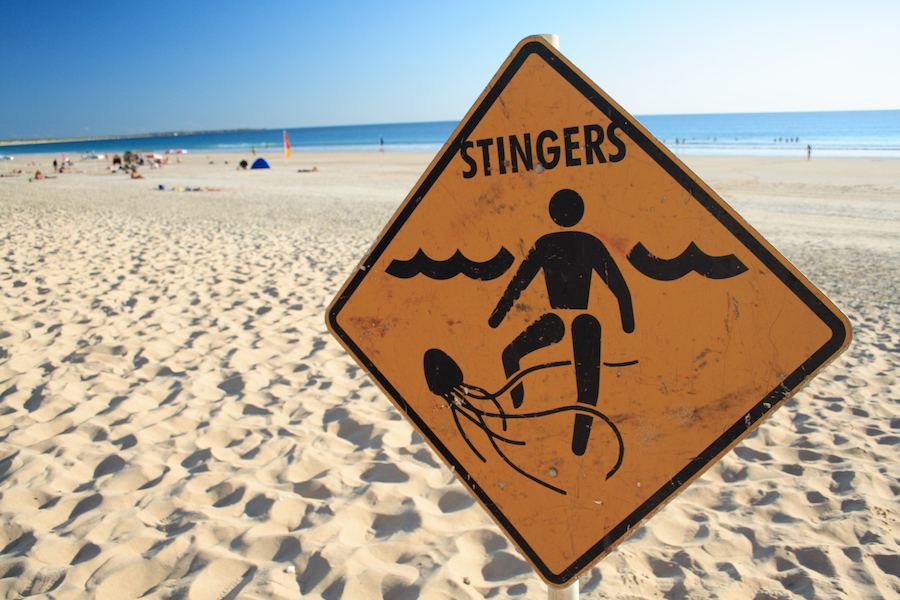
Stingers
Get Out of the Water
If stung by a jellyfish, the first step is to safely exit the water. Avoid rubbing the affected area, as it can worsen the pain and release more venom. It’s important to act quickly to minimize the spread of venom through the body.
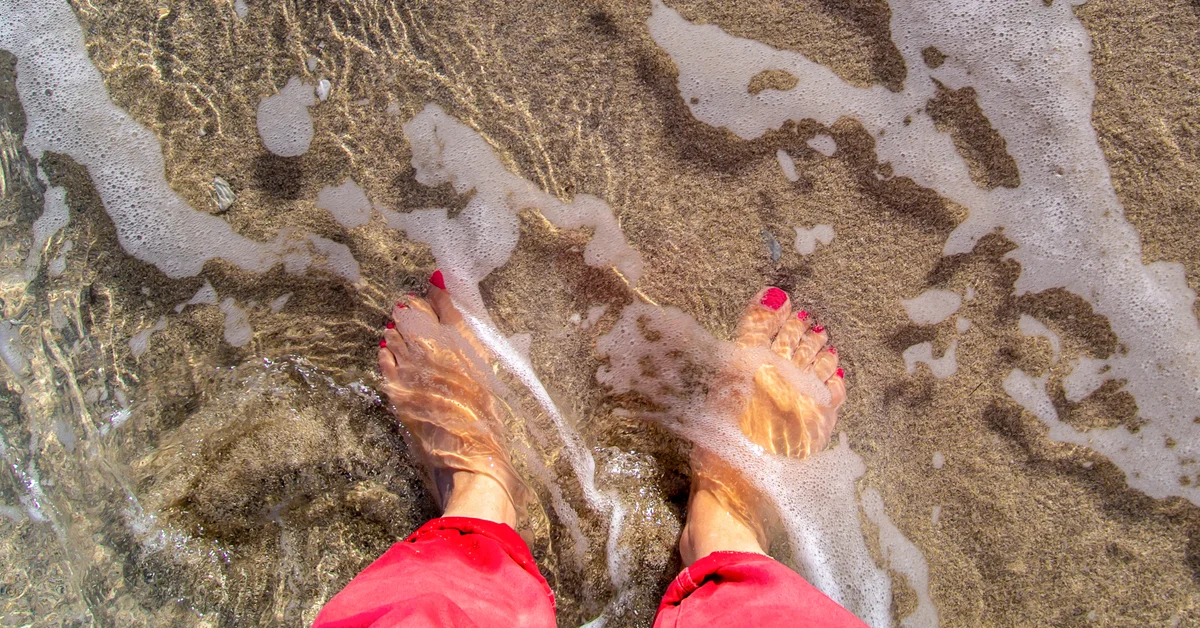
Get Out Of The Water
Rinse with Seawater
Instead of using freshwater, rinse the affected area with seawater to remove any tentacles that may still be attached. Avoid using your hands or a towel to wipe the area, as it may lead to more venom release. Gently pour seawater over the sting for several minutes to help flush out any remaining tentacles.
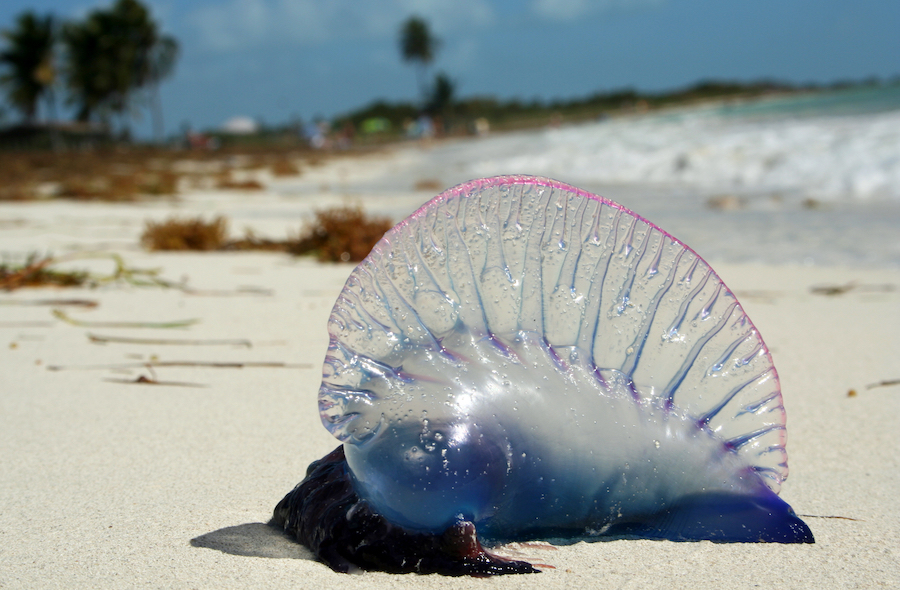
Rinse With Seawater
Use Vinegar
Vinegar is an effective remedy for neutralizing the toxins of certain jellyfish species. If available, carefully pour vinegar on the affected area for about 30 seconds. This can help deactivate the venom and alleviate pain. However, vinegar should not be used for all types of jellyfish stings, so it’s best to consult a lifeguard or medical professional for guidance.
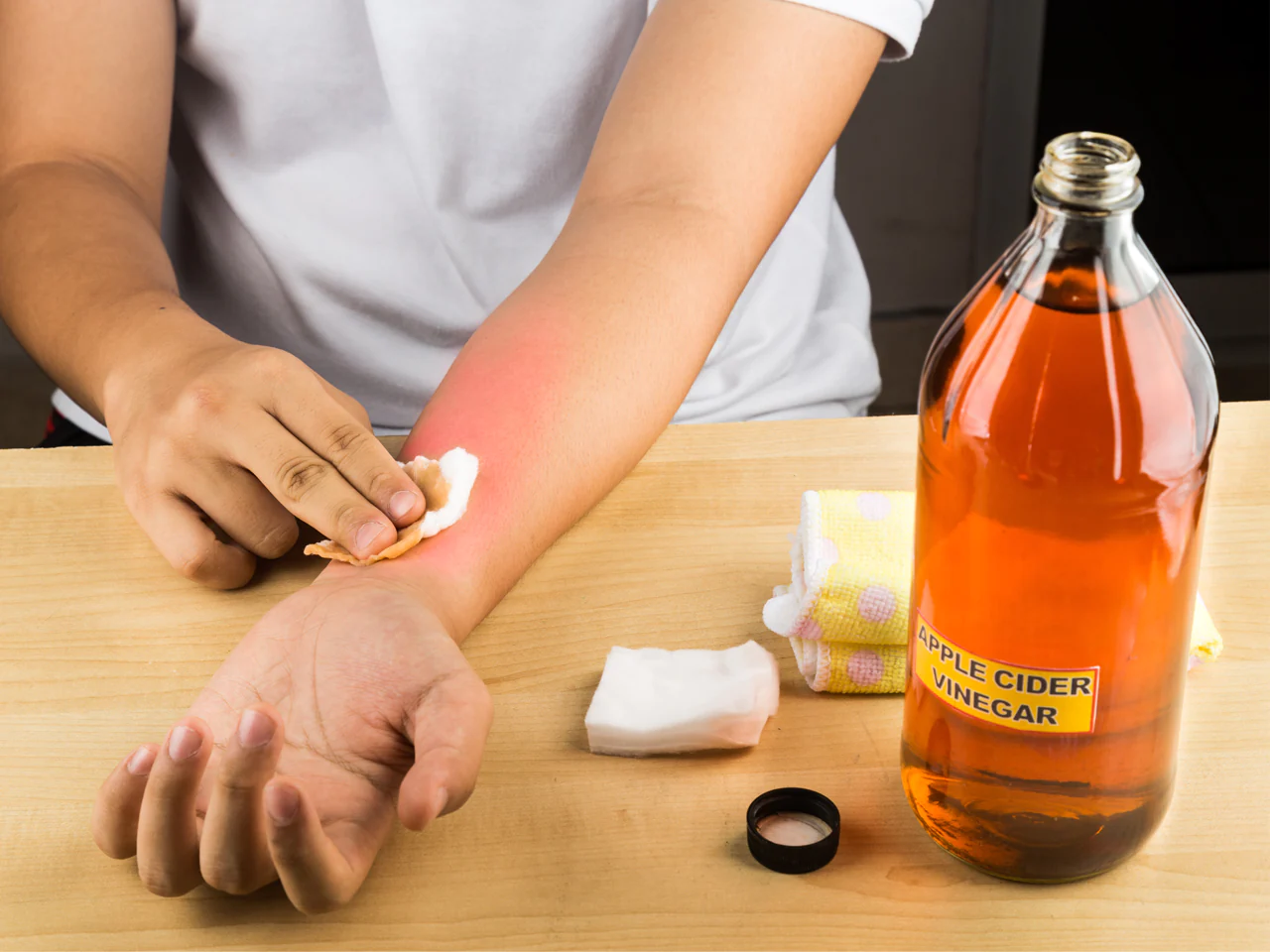
Use Vinegar
Apply a Hot Compress
To ease the pain and reduce swelling, apply a hot compress or immerse the affected area in warm water (not scalding hot). The heat helps to break down the venom and provide relief. Be sure to monitor the temperature to avoid burning the skin and discontinue the treatment if it causes discomfort.
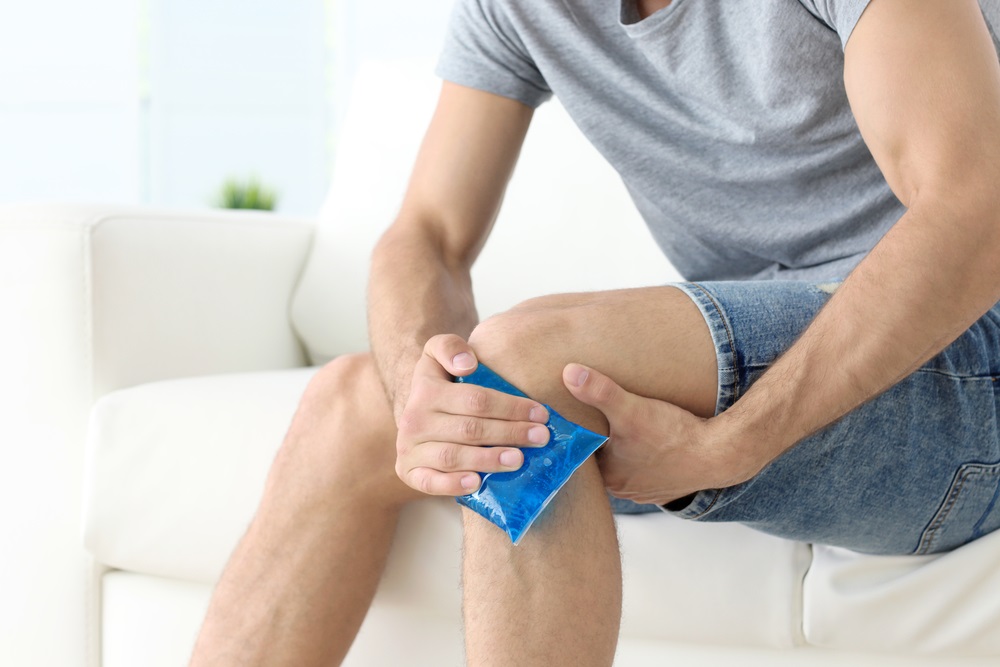
Apply A Hot Compress
Remove Tentacles with Tweezers
If any tentacles remain on the skin, carefully remove them using tweezers or a similar tool. Avoid touching them with bare hands, as this can cause further stings. Gently lift the tentacles away from the skin, taking care to minimize contact with unaffected areas. Be cautious not to squeeze or crush the tentacles.

Remove Tentacles With Tweezers
Seek Medical Assistance
In severe cases, or if the pain and symptoms persist or worsen, it’s essential to seek medical attention promptly. Some jellyfish stings can cause severe allergic reactions or require additional medical treatment. A healthcare professional can assess the situation and provide appropriate care, such as administering pain relief medication or applying specialized treatments.

Seek Medical Assistance








